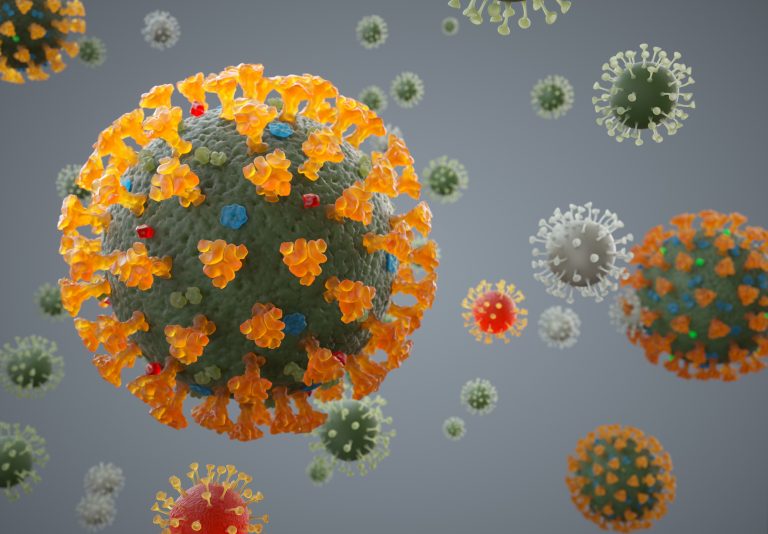
Researchers based at Newcastle University and MIP Diagnostics in the U.K., have developed a more sensitive and durable rapid COVID-19 test than conventional rapid tests using synthetic nanoparticles (nanoMIPs) instead of antibodies for virus detection.
Rapid COVID-19 antigen tests have become a staple item during the pandemic, making it quick and easy for everyone to detect SARS-CoV-2 even at home. Most of them, such as BinaxNOW and QuickVue, work by using colored labels attached to antibodies against the SARS-CoV-2 spike protein. When the antigen is detected, the antibodies bind to it, forming a colored line on a membrane.
Unfortunately, current rapid tests have been proven to vary in accuracy and the use of antibodies as receptors decreases their ability to withstand wide ranges of temperature and pH, resulting in finite shelf life and limited application.
Reporting in ACS Sensors, Marloes Peeters, Senior Lecturer at Newcastle University, Francesco Canfarotta, Head of Chemistry at MIP Diagnostics, and colleagues have developed a new kind of rapid COVID-19 test using synthetic nanoparticles instead of antibodies as receptors. These synthetic particles bind SARS-CoV-2 antigens even at a very low viral load, and are more durable and cheaper to make than antibodies.
“We demonstrate that, unlike antibodies and other biomaterial- based receptors, nanoMIPs can withstand extremes of temperature and pH without experiencing deterioration in sensing performance,“ the authors stated.
Nanoparticle technology has been used in the past to develop rapid COVID-19 tests, as reported in an older article published in ACS Sensors. However, here they were only used as markers attached to the antibodies and not as an antibody replacement.
A prototype of Peeters´ new rapid test only required 15 minutes to complete and preliminary results from seven samples, showed the ability to detect a 6000-times lower amount of the SARS-CoV-2 spike protein, compared to commercial antigen tests.
Amid the Wall Street Journal and others reporting concerns of rapid COVID-19 tests being less effective at detecting new variants such as Omicron, the nanoparticles were shown to bind multiple versions of the spike protein. The authors called the test “highly promising for potential commercial applications,” stating that, in case of a future variant, new specific nanoparticles could be easily developed in a low-cost, safe and rapid manner (3-4 weeks).
The researchers note that by using only a small fragment of the SARS-CoV-2 spike protein for the nanoparticle production, reagent costs could be reduced 1500-fold while remaining highly specific.
Compared to antibodies, the synthetic particles withstood high temperatures and acidic pH, promising an improved shelf life with easier storage conditions. At the moment “the temperature sensitivity of commercial antigen tests presents a serious disadvantage that may limit their use globally as well as lead to large amounts of plastic waste and/or poor diagnostic accuracy due to test spoilage,” said the authors of the paper.
Nanoparticle technology could also be used in rapid test validation amid the growing needs for reliable point-of-care COVID-19 tests. In a study published in Biomacromolecules, virus like synthetic particles were used as positive controls for COVID-19 diagnosis, with promising results.
Despite its potential commercial success, “to prove that the test has a lower false negative rate than existing rapid antigen tests, it must be tested on many more samples,” the authors concluded in a press statement.













